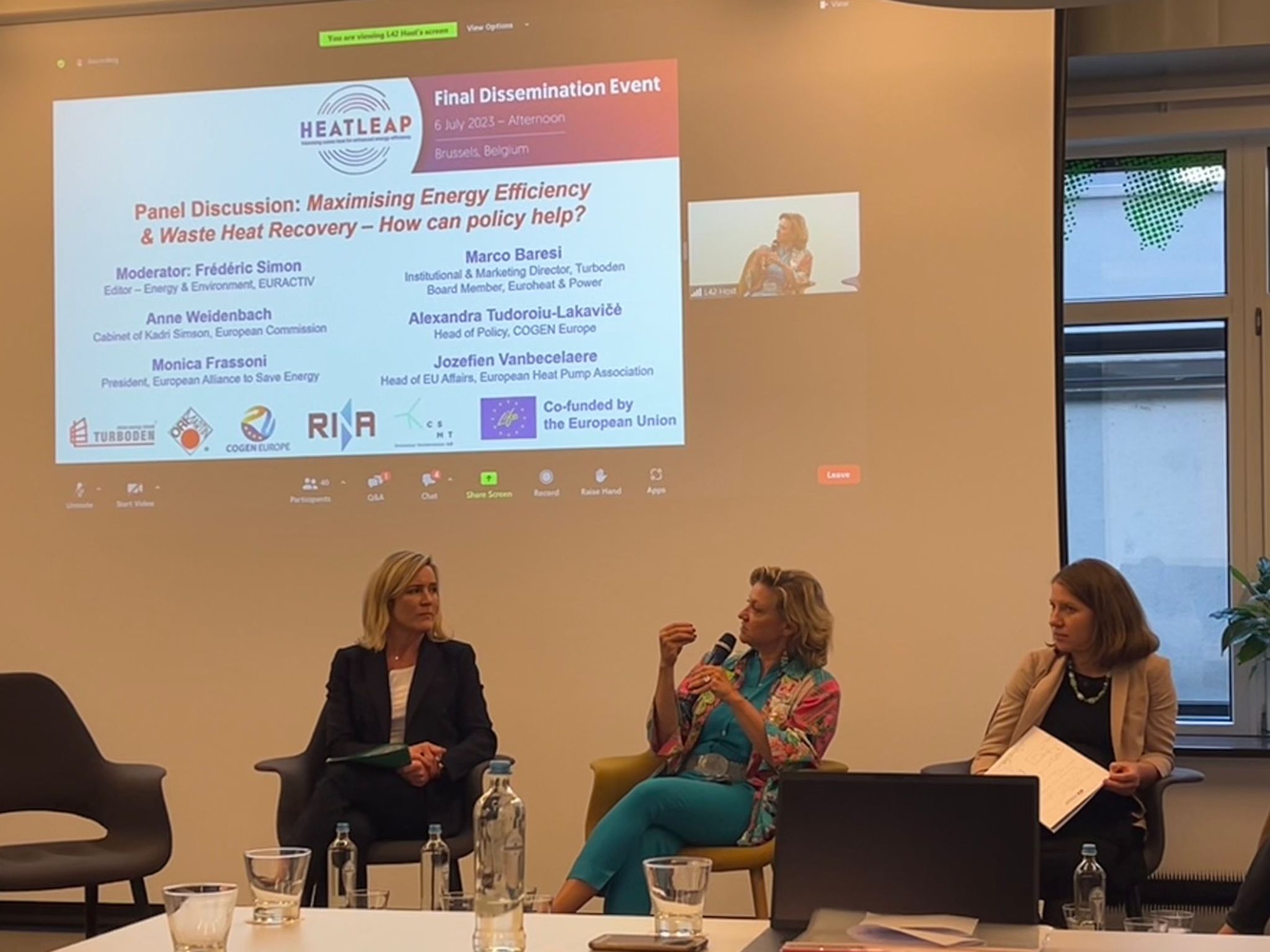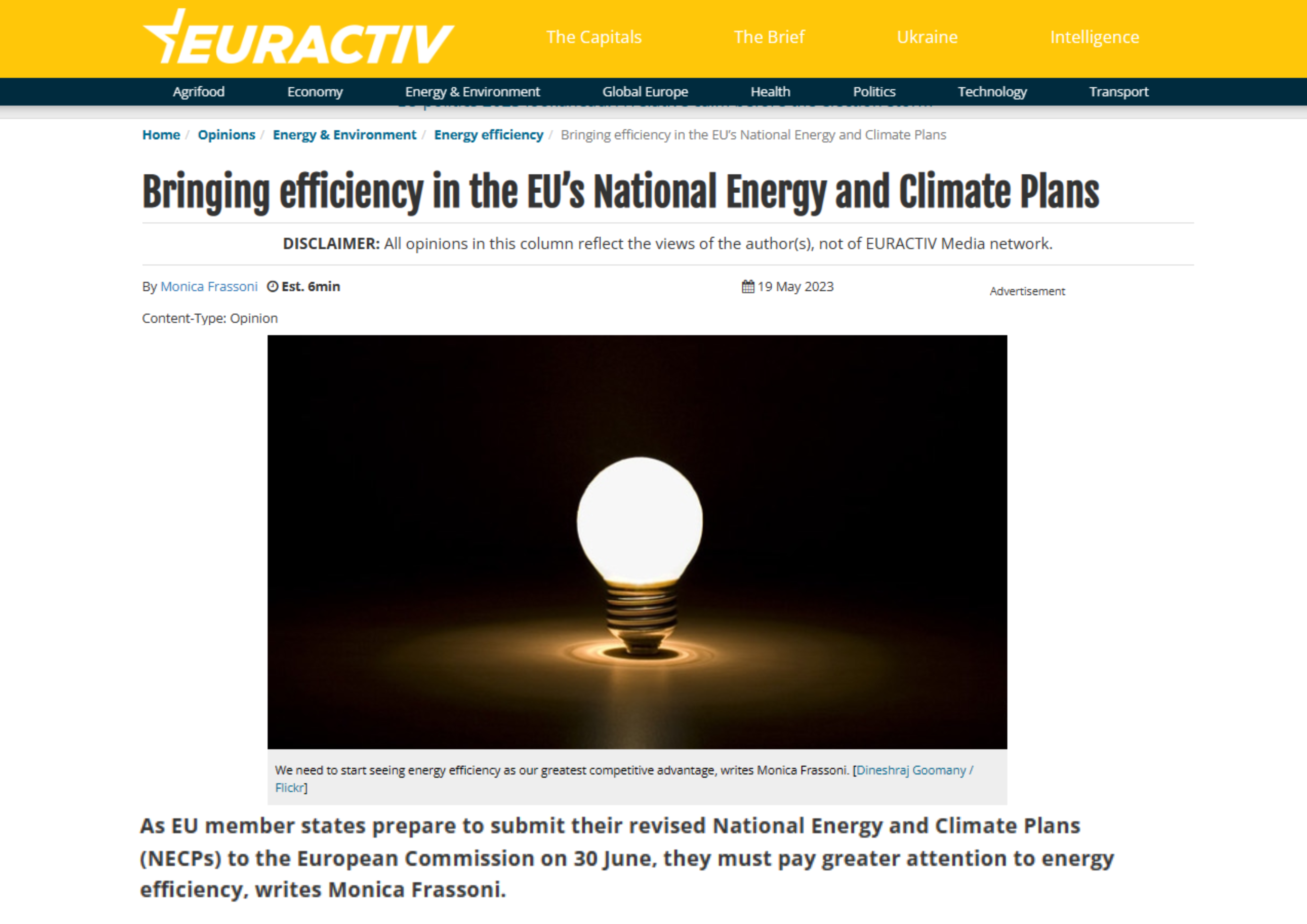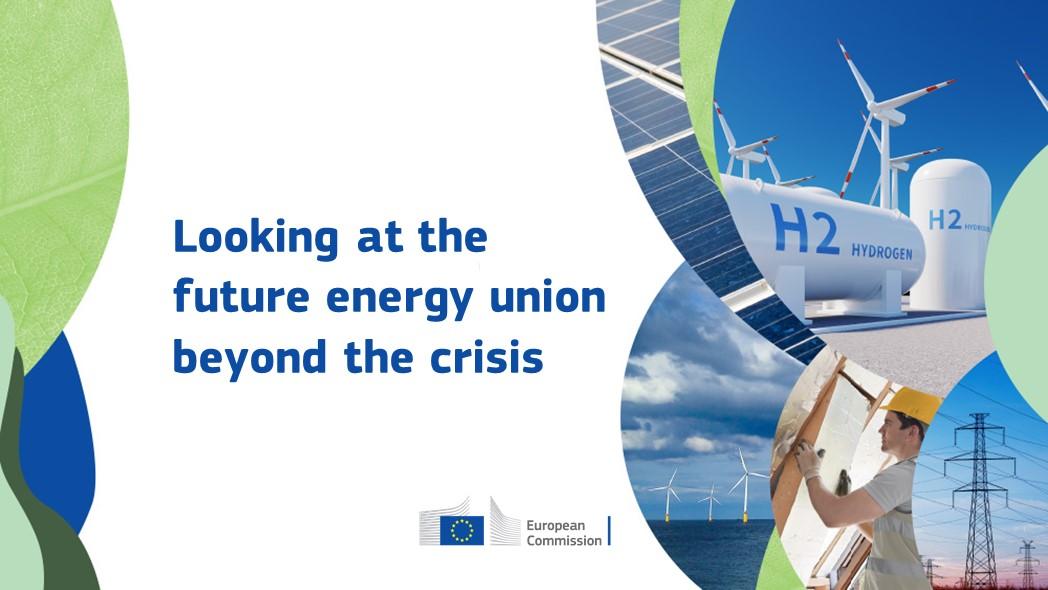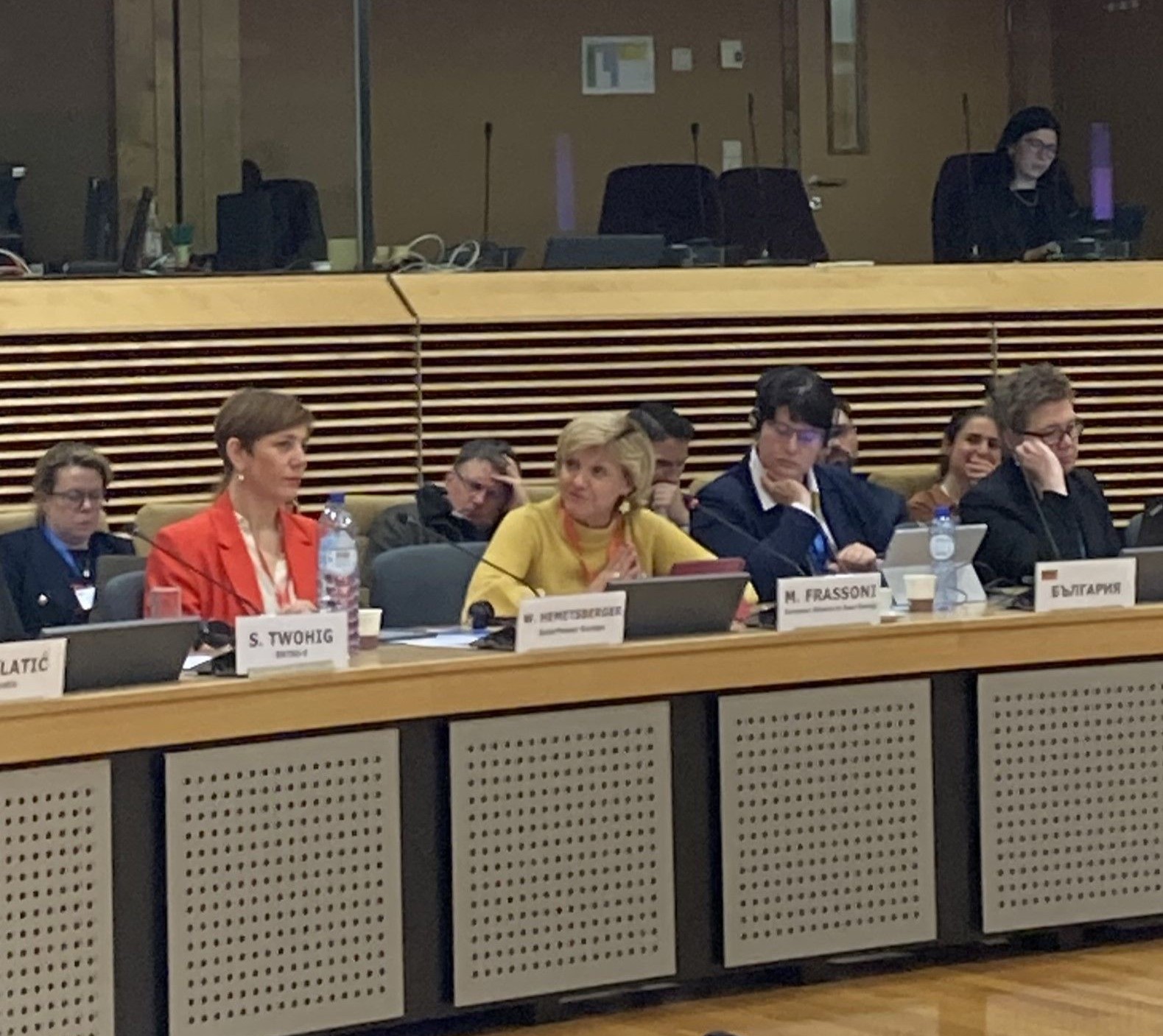To deliver the ambition of new energy efficiency directives
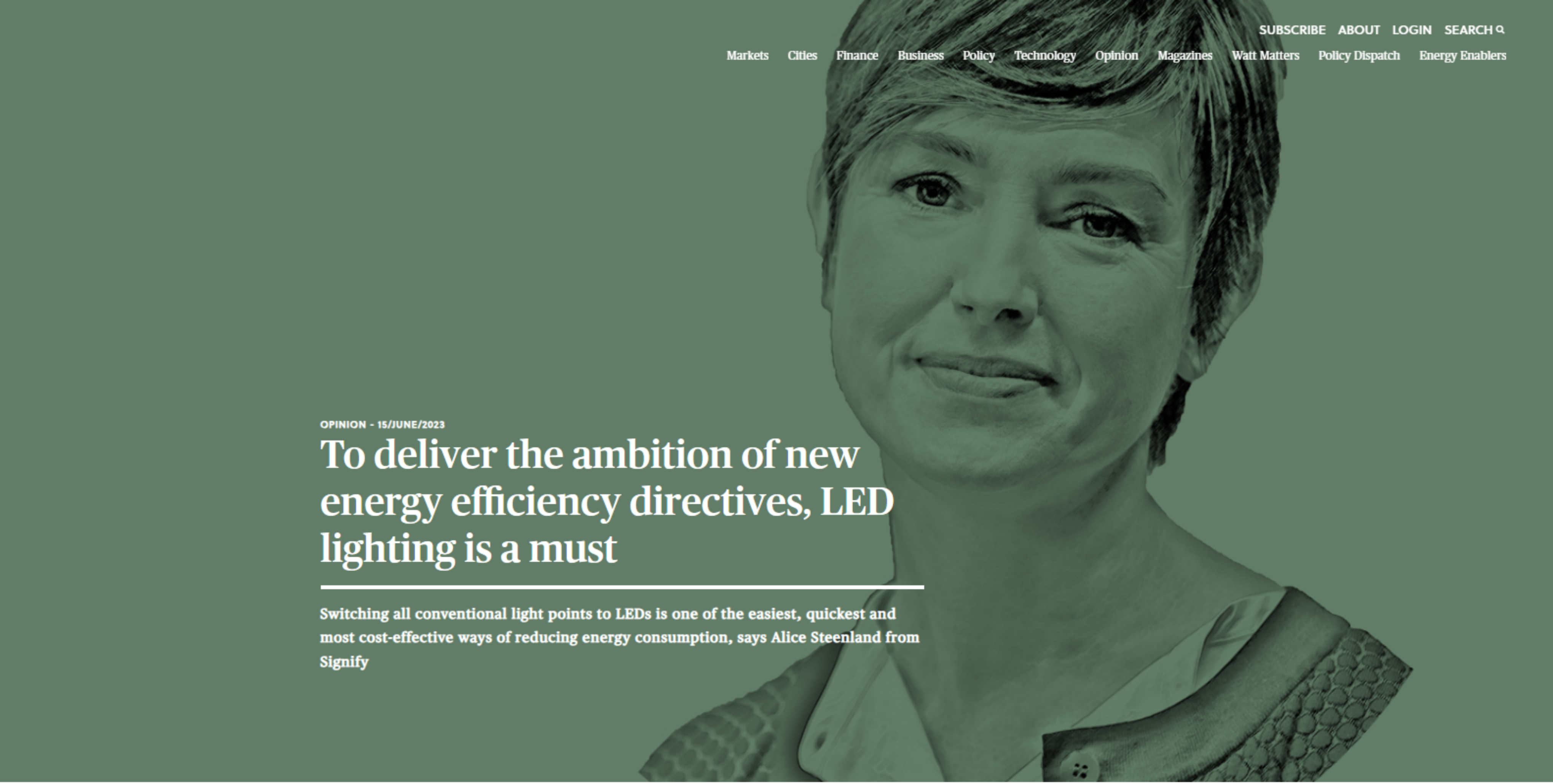
Switching all conventional light points to LEDs is one of the easiest, quickest and most cost-effective ways of reducing energy consumption, says Alice Steenland from Signify says Alice Steenland of Signify in Foresight Climate & Energy ahead of the second edition of European Energy Efficiency Day.
A simple change can make a big difference.
Simply swapping conventional lights for LED alternatives can reduce lighting-related energy usage by 50% or more. With smart lighting management in place, energy savings can approach 80% over conventional technology.
In Europe, half of all currently installed lights, residential and commercial combined, are conventional. This represents an enormous opportunity. Replacing all conventional lights in the EU with LED alternatives could save an estimated €65 billion in energy costs, depending on energy rates, and could reduce CO2 emissions by 51 million tonnes—not just once, but every single year.
Read the full article on Foresight Climate & Energy.
More information on Energy Efficiency Day here & Register here.

